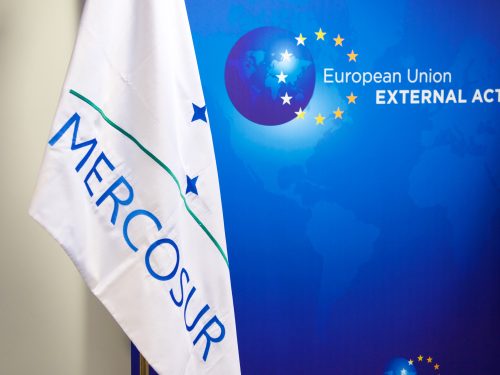News
Share on
This morning, a meeting on the automotive sector convened by the Ministry of Economic Development was held, attended by the Minister for Economic Development Giancarlo Giorgetti, the Minister for Ecological Transition Roberto Cingolani, the Minister for Economic Affairs and Finance Daniele Franco, the Minister for Infrastructure and Sustainable Mobility Enrico Giovannini, and the Minister for Labour and Social Policies Andrea Orlando.
ANFIA was present with all the Associations of the automotive supply chain and trade union representatives.
Vice President Maurizio Marchesini spoke for Confindustria.
The Table met on the eve of an important meeting of the European Climate, Environment and Energy Council scheduled for 28 June, an occasion at which the outcome of last weeks' European Parliament vote on the Fit for 55 package, which decreed a stop to endothermic engines from 2035, could be changed.
In particular, on 28 June the Member States will have to express their position on the target set by the Parliament and, in view of the opposing views expressed by some countries including Germany, a more gradual transition could be envisaged by allowing the registration of 10% or more of cars with endothermic engines even beyond 2035.
Unanimous was the position expressed by the Associations of the automotive supply chain, which emphasised the complexities of the transition and the need to ensure technological neutrality in order to achieve the CO2 emission reduction targets. Technological neutrality is considered fundamental to ensure the continuity of the supply chain, which represents the heart of the industry and guarantees social stability, avoiding the loss of more than 70,000 jobs in Italy alone. Added to these motivations is the need to consider both the so-called Life Cycle Assessment, which makes it possible to assess the actual environmental impact of the transition to electric power, and the assets that will be created as a result of Europe's dependence on Asia, which possesses the raw materials needed to build batteries.
In his speech, Vice-President Marchesini reiterated the need to quickly adopt an industrial policy plan to support the sector's transition, emphasising that even if the constraints set by the European Parliament were to be relaxed in the Council of 28 June, the sector would still have to face a path of reconversion. Marchesini also emphasised that a different decision by the European Council would only lengthen the time of the transition, and the need to deal with huge investments remains.
The Vice-President recalled that the Plan will have to address all aspects of the transition and will have to focus on three main areas: research and development, investment, and training, which is the key to ensuring the inclusion of human resources active in the sector. The more than EUR 8 billion allocated by the government represent important resources that, if properly oriented towards these priorities and used through instruments consistent with the objectives to be achieved, will be able to provide concrete support to the entire sector.
On the part of the Government, full agreement was shown with the positions expressed by the participants, maximum commitment to influence the position of the European Council and willingness to work together to define the necessary measures as soon as possible.
Attachments




